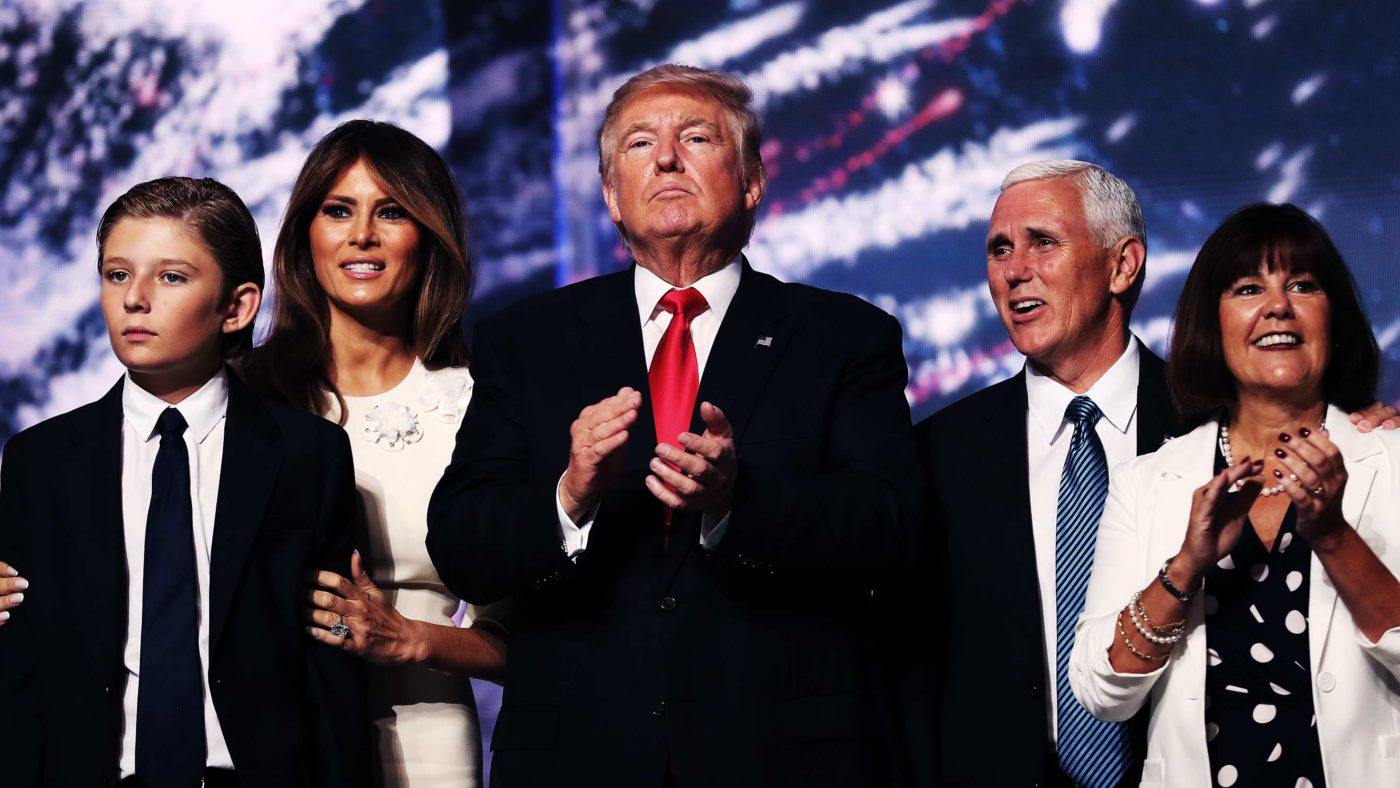This is the weekly newsletter from CapX. To receive it by email every Friday, along with a short daily email of our top five stories, please subscribe here.
This week, the news cycle has once again been dominated by Donald Trump. At the Republican National Convention in Cleveland, Ohio, moderate Republicans who detest and distrust Trump watched in horror at the bombastic populism that has infiltrated their esteemed party. Democrats held their breath, hoping Trump would be impaled on his own hyperbole. And here in the UK, spectators of US politics were unsure whether to laugh or cry when Trump was officially crowned the Republican nominee on Wednesday.
Trump’s appallingly orchestrated convention has provided round-the-clock political entertainment, from his wife Melania delivering a speech partly plagiarised from Michelle Obama, to Ted Cruz using his prime-time slot to publicly refuse to endorse the Trump campaign. Amidst all the drama, it is easy to forget that in three months the US could hand the presidency to a man who is a major threat to global security.
On Thursday, the New York Times published an interview with Trump in which he casually brushed aside six decades of US foreign policy in favour of American nationalism and isolationism. Trump questioned US involvement with Russia, China, Turkey and Syria, saying America had to “fix our own mess” before “lecturing” other countries on civil rights or military aggression.
The interview left no doubt about Trump’s devastating approach to foreign policy and I would encourage everyone to read the entire piece. But near the beginning, before Trump gets round to denouncing NAFTA or promising to solve the conflict between Erdogan and the Kurds with “meetings”, there is a brief moment when he considers North Korea. Trump is furious at the cost of stationing US troops in South Korea and Japan. When the interviewer points out that there have been decades of relative stability in the region thanks to the US presence, Trump replies that, if America had not had forces there to keep the peace, “Maybe you would have had a unified Korea”.
It just so happens that I am currently reading In Order To Live, the heart-breaking autobiography of North Korean defector Yeonmi Park. Park, who is now just twenty-two, escaped when she was thirteen, after facing starvation and brutality at the hands of the North Korean state. I was lucky enough to meet her a few years ago, and I remember the way her voice shook when she talked about life under Kim Jong-Il’s oppressive regime. At the end of her book, Park finds freedom and salvation in South Korea, with its bright lights, flourishing economy, and culture of individual liberty. And she learns what her homeland would have done to its southern neighbour had the US not acted as a deterrent.
Trump is probably right that there would be a unified Korea if not for America and other foreign forces, but it would be a Korea dominated by the dictatorship of the North. When I was in Seoul, I visited the War Memorial, the military history museum which tells the story of the Korean War and commemorates the international effort that helped keep South Korea free. It is an emotive experience, especially in the wake of the Iraq War when western imperialism has never been more unpopular.
This does not mean that hawkish interventionism is always the answer – the Chilcot Inquiry has shown us that. It is merely to point out that there are degrees of nuance when it comes to foreign policy that Trump either does not know or does not care about. He can argue blithely in favour of abandoning NATO’s guarantee of mutual defence with little concern for how it will play outside of America. Indeed, Trump’s comments led to an immediate flurry of international panic – the Estonian President even tweeted about Estonia’s commitment to NATO and support for the US in Afghanistan. For the Baltic states that fear Russian intimidation, or the countries struggling against Chinese aggression in the South China Sea, Trump’s carelessness could have very real consequences.
But it seems the media has already forgotten that the Republican Party has just handed the nomination to a man who believes the world might be better off if South Korea did not exist. The newspapers today focus Trump’s keynote convention speech, which turned out to be a fusion of doomsday populism and brash authoritarianism, with a healthy dose of misleading statistics. According to pundits, Trump is “learning how to play the game”, and is a force to be reckoned with as the official Republican campaign gets underway. His dismissal of NATO is still causing a minor uproar abroad, but his foreign policies are no longer the main story. Instead, the BBC leads with the headline “Trump promises a ‘safer’ America”.
The irony is that Trump’s “promises” are a real risk to global security, America included.


